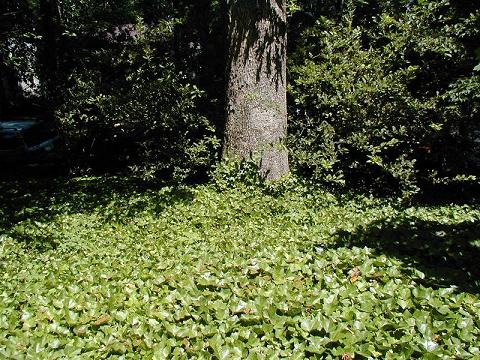
Check out our Services.
| Mosquito Control |

|
Need help? Check out our Services. |
| Donut-like larvicide kills developing mosquitoes |

|

|
| Water collecting in the bottom of corrugated tubing | English ivy as a home for developing mosquitoes |